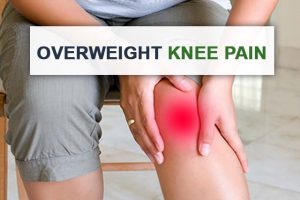Loose Skin vs Fat – Loose skin and fat are two common problems faced by people of all ages. While these two terms may seem synonymous, they are actually quite different. Loose skin occurs when the skin loses its elasticity and can be caused by a variety of factors, including aging, weight loss, and genetics. Fat, on the other hand, is simply excess body weight that accumulates in certain areas. In this article, we will explore the differences between loose skin and fat, the potential health risks associated with each, and available treatment options.
Causes of Loose Skin
Loose skin can be caused by a variety of factors, including aging, genetics, weight loss, and even pregnancy. As people age, the skin’s natural elasticity decreases, making it more prone to sagging. Additionally, genetics can play a role in the amount of elasticity the skin retains. Weight loss can also cause the skin to become loose, as the skin may not be able to shrink back to its original size after a large amount of weight is lost. Lastly, pregnancy can cause the skin to stretch and become loose, especially in the abdominal area.
Health Risks of Loose Skin
In some cases, loose skin can cause physical discomfort or even health issues. The excess skin can cause chafing, rashes, and infection. Additionally, loose skin can make it difficult to move or exercise, as there is additional weight to bear. Lastly, in some cases, the excess skin can cause psychological distress or lead to low self-esteem.
Health Risks of Fat
Fat, unlike loose skin, can lead to a variety of health risks. Excess body weight can increase the risk of developing type 2 diabetes, heart disease, stroke, and some forms of cancer. Additionally, fat can increase the risk of developing high blood pressure, high cholesterol levels, and other conditions.
Treatment Options for Loose Skin
The treatment options for loose skin depend on the cause and severity of the condition. In some cases, the skin can return to its normal state with the help of creams, lotions, and other topical treatments. Additionally, certain lifestyle changes such as increasing water consumption and eating a balanced diet can help reduce the appearance of loose skin. In more serious cases, surgical treatments such as abdominoplasty or brachioplasty may be recommended.
Treatment Options for Fat
The treatment of fat typically includes lifestyle modifications, such as diet and exercise. Eating a nutritious, balanced diet and engaging in regular physical activity can help reduce body fat and improve overall health. Additionally, certain medications, such as prescription weight loss drugs, may be recommended for people who are unable to lose weight with lifestyle modifications alone. In some cases, surgical treatments such as liposuction may be an option.
Prevention of Loose Skin and Fat
The best way to prevent loose skin and fat is to maintain a healthy lifestyle. Eating a balanced diet and engaging in regular physical activity can help keep weight at a healthy level and reduce the risk of developing excess fat. Additionally, maintaining an adequate level of hydration and avoiding smoking can help reduce the risk of developing loose skin.
Loose Skin vs Fat – Summary and Conclusion
In summary, loose skin and fat are two common issues that can affect people of all ages. Loose skin is caused by a variety of factors, including age, genetics, weight loss, and pregnancy. Fat, on the other hand, is simply excess body weight that accumulates in certain areas. Excess body fat can lead to a variety of health issues, while the excess skin can cause physical discomfort and psychological distress. The best way to prevent loose skin and fat is to maintain a healthy lifestyle. Eating a balanced diet and engaging in regular physical activity can help keep weight at a healthy level and reduce the risk of developing excess fat. Additionally, maintaining an adequate level of hydration and avoiding smoking can help reduce the risk of developing loose skin.





